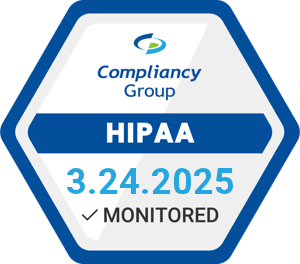On The Road Again – Take Aways from the First DTA Summit and Preparation for the Longest Running DIA Annual Meeting
By Dave Hanaman
My colleagues and I spent the first week of June at the newest event in the industry – the inaugural Digital Therapeutics Alliance (DTA) Summit in Washington DC, and, wow – it left a solid impression on me, and hopefully on our representatives’ Capitol Hill. Next week, I’ll be headed to one of the oldest pharmaceutical gatherings, DIA’s Annual Conference.
The DTA Summit was big enough to be interesting yet small enough to be intimate. A primary reason for its success is that, unlike larger industry conferences, all of the attendees – vendors and manufacturers alike – came to DC with a common mission: to advocate in Congress for the digital therapeutics (DTx) industry. We were all working to drive our proverbial boat toward the same destination, and that felt…good.
The primary goal of the DTx industry right now is the passage of the Access to Prescription Digital Therapeutics Act of 2023 that was introduced last year. It is both a bi-partisan and bi-cameral bill. Its next hurdle is to be scored by the Congressional Budget Office, hopefully in this 118th Congress. To that end, attendees spent the DTA Summit meeting with Senators, members of Congress, and their staffs to generate awareness of the bill, answer their questions, and seek their sponsorship. The benefits of digital therapeutics – especially in terms of health equity and access – were met with enthusiasm.
As a Utah resident, I was proud that my representative, Congressman Blake Moore, was one of the few elected officials to meet with our delegation personally. In most cases, we – understandably – met with highly professional and engaged staff members, not the legislators themselves. It is easy to be critical, but I found it humbling to engage with our elected representatives and their dedicated staff who are, on the whole, working hard to “do the right thing”, however, they define that goal.
My congressional delegation “team” included three DTx company executives, a member of the DTA, and a young healthcare practitioner who manages a primary care clinic in rural Vermont. The DTx executives educated members of Congress on the wide range of DTx products and the different diseases they can treat – not just mental health, as many people think is the primary focus for DTx. I often found myself attesting to the veracity of the research that supports these companies’ FDA approvals.
To me, the healthcare practitioner in our group made the biggest impression; she compassionately relayed her experience working with populations that have both low financial and geographical access to healthcare and advocated strongly for the importance of creating a level reimbursement “playing field” for novel digital therapeutics. She recounted her frustration at prescribing digital therapeutics for her patients – in many cases with the intention of keeping them off traditional medications with side effects – only to have her patients not fill the prescriptions because of the failure of their insurance to reimburse the FDA-approved therapy, forcing her to rely on pills. Her deep frustration resonated with the healthcare policy experts we met with, along with everyone else in the room.
On the road again, I will now travel from a nascent organization’s first national conference (the DTA Summit), head up the eastern seaboard, and walk into the granddaddy of pharmaceutical industry conferences – the DIA Annual Meeting. I hope to find the same level of commitment, collaboration, and camaraderie for a common cause among my colleagues next week but recognize that this may be elusive in such a large gathering that pulls together so many competing interests.
Our industry continues to experience a great deal of change – the kind of transformation that only a once-in-a-lifetime-pandemic – combined with fiscal constraints and a changing population – can catalyze. I’m looking forward to engaging fellow DIA attendees in a discussion of how we can support important population health goals like access and diversity with infinitely scalable and deployable digital therapies, supported by research conducted with decentralized clinical trials, which apply digital processes and technologies to radically improve patent recruitment, diversity, and engagement.
Combined, government support, digital therapies, and the growing adoption of decentralized clinical trials, can build a path to greater access, diversity, and health equity. That’s something worth advocating for – whether you’re attending a little conference or a big one!
Let’s continue this important conversation at the DIA Annual Meeting, where Curavit Clinical Research will be unveiling its DEI planning toolkit to help sponsors meet new diversity requirements in clinical trials. Read the news here and shoot me a note (dave.hanaman@curavitclinicalresearch.com) to schedule a meet-up on-site.










